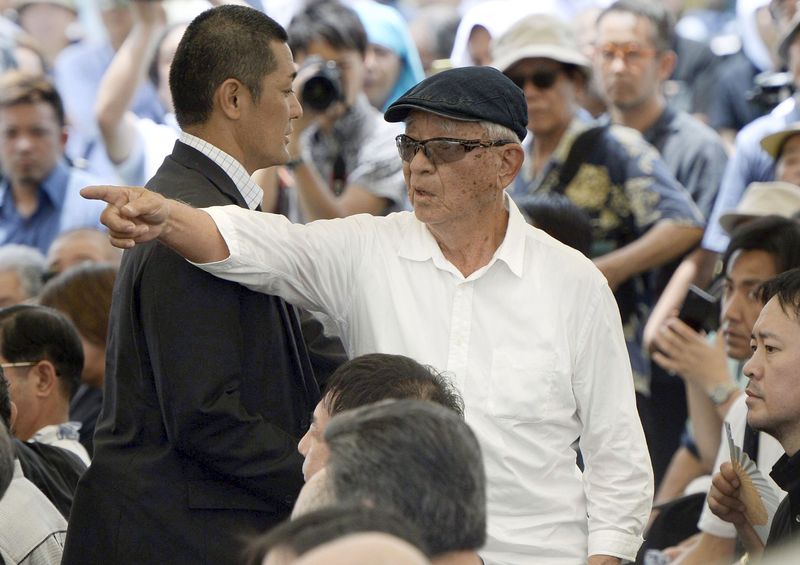By Elaine Lies
TOKYO (Reuters) - Japanese Prime Minister Shinzo Abe was heckled and met with cries of "Go home!" at a ceremony marking the 70th anniversary of the bloody Battle of Okinawa on Tuesday, an unusal outburst in conservative Japan at such a highly choreographed event.
Residents of the southern island, which suffered Japan's only land battle in World War Two and lost a third of its population, have long resented that they must also host tens of thousands of U.S. troops and U.S. military facilities covering 18 percent of their island's area.
Okinawa governor Takeshi Onaga and thousands of other Okinawans have rejected a proposal to move the U.S. Marines' Futenma base to reclaimed land off the Henoko district in northern Okinawa, calling for it to be moved off Okinawa altogether.
Onaga, who won election late last year on his opposition to the base move, told the gathering commemorating the end of the Battle of Okinawa that claimed roughly 200,000 lives - U.S. and Japanese soldiers and civilians - that the opinion of Okinawans about the new base was clear.
"I strongly call on the government to not be bound by stubborn concerns and to change their policies to lighten our burden," Onaga told crowds gathered under the tropical sun.
As Abe, dressed in a black Okinawan shirt, bowed to flowers honouring those who lost their lives in the nearly three-month battle known as the "Typhoon of Steel", an elderly man in a black beret stood and pointed at him while a handful of hecklers shouted "Go home!"
Abe told the crowd that Japan had to continue to make efforts for world peace as the heckling continued.
"The people of Okinawa are bearing a heavy burden for security with the concentration of U.S. bases," he said.
"We will continue to make every effort to lighten your burden," he added, without referring directly to Futenma.

The United States and Japan agreed in 1996 to close the Futenma base, located in a populous part of the island. But plans to move it to the new Henoko site have stalled in the face opposition from residents, many of whom associate U.S. bases with noise, pollution and crime.